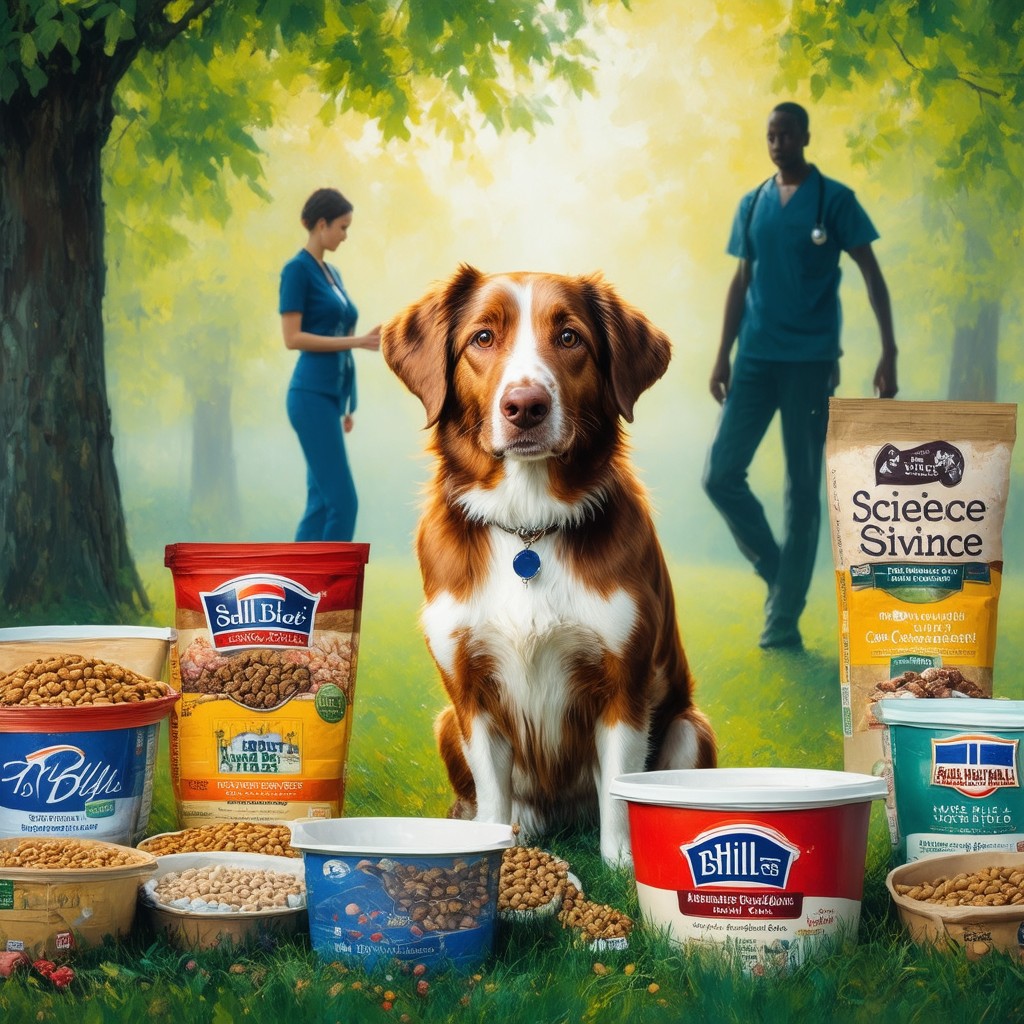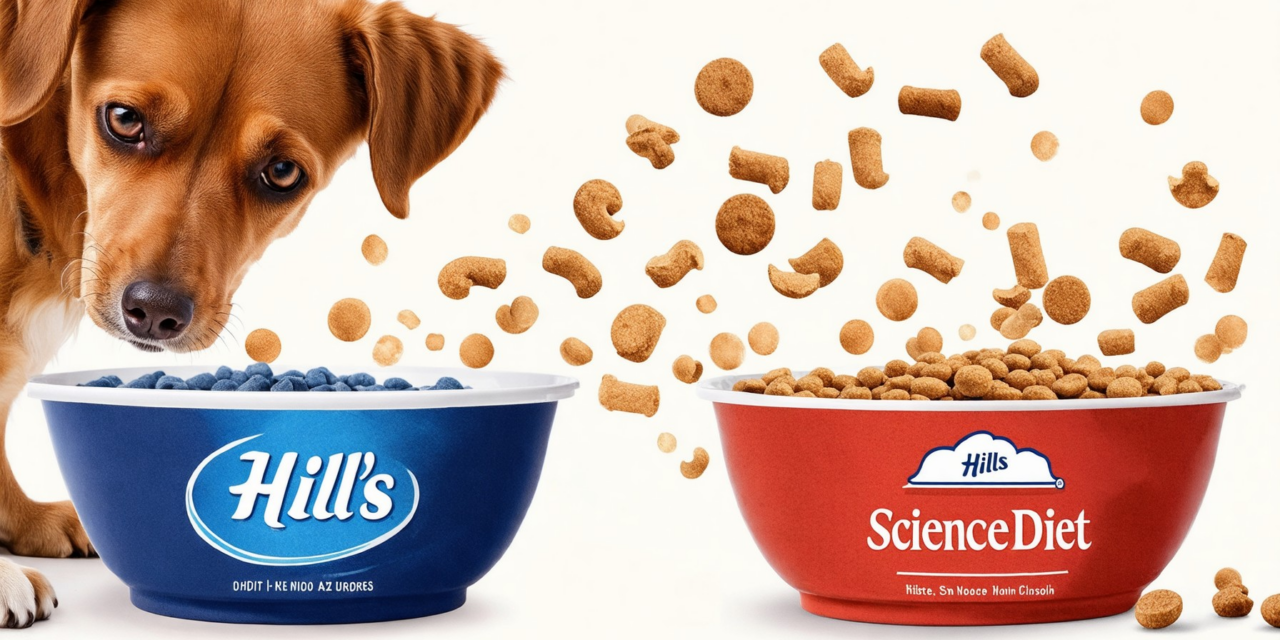Key Takeaways
- Hill’s Science Diet is often recommended by veterinarians for its scientifically backed formulations tailored to various health needs.
- Common concerns include ingredient quality, particularly the use of legumes, which may be linked to canine dilated cardiomyopathy (DCM).
- Pricing can be a factor, as Hill’s Science Diet is often more expensive than some competing brands.
- Pet owners should monitor for recalls, such as the recent FDA alert regarding elevated vitamin D levels in certain canned products.
- Hill’s offers a range of specialized diets for different life stages and health issues, providing targeted nutrition for dogs.
- Understanding the ownership of Hill’s by Colgate-Palmolive can assure pet owners about the brand’s commitment to quality and safety.
- Consulting with your veterinarian is essential for making informed dietary decisions for your dog.
When it comes to choosing the best nutrition for your furry friend, Hill’s Science Diet dog food often emerges as a top contender. But is it truly the right choice for your pet? In this article, we will delve into the various aspects of Hill’s Science Diet, exploring common concerns and nutritional controversies that pet owners frequently encounter. We will also highlight why many veterinarians recommend this brand, examining the science behind its formulations. Additionally, we will compare Hill’s Science Diet with other popular options, such as Blue Buffalo, to help you make an informed decision. Furthermore, we will provide essential feeding guidelines tailored to your dog’s size and age, clarify the ownership of Hill’s, and discuss recent developments surrounding the brand. Finally, we will explore the different variants of Hill’s Science Diet dog food, including options for sensitive stomachs and puppies. Join us as we navigate through these critical points to determine if Hill’s Science Diet is the best fit for your beloved canine companion.
What are the issues with Hill’s Science Diet dog food?
Hill’s Science Diet dog food is widely recognized and often recommended by veterinarians, yet it is not without its controversies. Understanding the common concerns and nutritional controversies surrounding this brand can help pet owners make informed decisions about their dog’s diet.
Common Concerns About Hill’s Science Diet
While Hill’s Science Diet is often recommended by veterinarians, there are several issues associated with its formulations that pet owners should consider:
- Ingredient Concerns: Many recipes include yellow peas, pea fiber, soybean meal, and other legumes. Recent studies have raised concerns about the potential link between high legume diets and canine dilated cardiomyopathy (DCM), a serious heart condition in dogs. The FDA has been investigating these claims, and pet owners are advised to consult their veterinarians regarding diet choices (FDA, 2018).
- Protein Sources: Some critics argue that the protein sources in Hill’s Science Diet are not as high-quality as those found in premium brands. Ingredients like soybean meal may not provide the same nutritional benefits as meat-based proteins, which are essential for a dog’s overall health and muscle maintenance.
- Cost: Hill’s Science Diet is often more expensive than other dog food brands, which can be a significant factor for budget-conscious pet owners. While the brand markets itself as a premium product, some consumers feel that the price does not always reflect the quality of the ingredients.
- Recalls: Like many pet food brands, Hill’s has faced recalls in the past. For example, in 2019, certain canned dog food products were recalled due to potential elevated levels of vitamin D, which can be harmful to dogs. Pet owners should stay informed about any recalls and check the FDA’s pet food recall page regularly (FDA, 2021).
- Limited Variety: Although Hill’s Science Diet offers a range of formulas, some pet owners find the variety lacking compared to other brands that provide more options for specific dietary needs, such as grain-free or raw diets.
In conclusion, while Hill’s Science Diet may be suitable for some dogs, it is essential for pet owners to carefully evaluate the ingredients, consider the potential health implications, and consult with their veterinarians to ensure they are making the best dietary choices for their pets.
Nutritional Controversies Surrounding Hill’s Science Diet
The nutritional profile of Hill’s Science Diet has sparked debates among pet owners and nutritionists alike. Here are some key points to consider:
- Ingredient Quality: The use of ingredients like corn and soy has raised eyebrows among those who advocate for more natural diets. Critics argue that these fillers do not provide optimal nutrition compared to higher-quality protein sources.
- Diet Formulations: Some formulations, particularly those aimed at specific health issues, may not be as effective as claimed. For instance, while the Hill’s Science Diet Sensitive Stomach and Skin is designed for dogs with digestive issues, some owners report mixed results.
- Marketing vs. Reality: The marketing of Hill’s Science Diet as a premium dog food can lead to misconceptions about its overall quality. Pet owners should critically assess the ingredients and nutritional claims rather than relying solely on branding.
Ultimately, understanding these nutritional controversies can empower pet owners to make better choices for their dogs, ensuring they receive the best possible nutrition tailored to their individual needs.

Why Do Vets Prefer Hill’s Science Diet?
Veterinarians prefer Hill’s Science Diet for several compelling reasons:
- Scientific Research and Development: Hill’s Science Diet invests heavily in scientific research and development. Their formulas are created by a team of veterinarians, pet nutritionists, and food scientists who ensure that each product meets the specific nutritional needs of pets at various life stages. This commitment to science-backed nutrition is a key factor in their recommendations.
- Clinical Testing: The brand conducts extensive clinical testing to validate the efficacy of their diets. Studies have shown that pets fed Hill’s Science Diet can experience improved health outcomes, including better weight management, enhanced digestive health, and improved skin and coat condition. Research published in veterinary journals supports these claims, demonstrating the positive impact of their formulations on pet health.
- Nutritional Adequacy: Hill’s Science Diet adheres to the standards set by the Association of American Feed Control Officials (AAFCO), ensuring that their products provide complete and balanced nutrition. This compliance is crucial for veterinarians when recommending diets that support overall pet health.
- Targeted Formulas: The brand offers a wide range of specialized diets tailored to address specific health concerns such as obesity, kidney disease, and food sensitivities. This variety allows veterinarians to recommend diets that are specifically suited to the individual needs of their patients.
- Reputation and Trust: Hill’s Science Diet has built a strong reputation within the veterinary community. Many veterinarians have seen firsthand the positive results of their diets in clinical practice, leading to a high level of trust in the brand.
- Client Education: Veterinarians often appreciate that Hill’s provides educational resources for pet owners, helping them understand the importance of nutrition in their pets’ health. This aligns with the holistic approach to pet wellness that many vets advocate.
In summary, the combination of rigorous scientific research, clinical testing, nutritional adequacy, targeted formulas, a strong reputation, and client education makes Hill’s Science Diet a preferred choice among veterinarians.
The Science Behind Hill’s Science Diet Formulations
The formulations of Hill’s Science Diet are rooted in extensive scientific research, ensuring that each product is designed to meet the unique nutritional needs of dogs at different life stages. Here are some key aspects of their formulations:
- Ingredient Quality: Hill’s Science Diet dog food is made with high-quality ingredients that are carefully selected for their nutritional value. This includes real meat, whole grains, and a variety of fruits and vegetables that contribute to a balanced diet.
- Life Stage Nutrition: Hill’s offers specific formulas for puppies, adults, and senior dogs, ensuring that each life stage receives the appropriate nutrients. For instance, Hill’s Science Diet puppy food is enriched with DHA from fish oil to support healthy brain development.
- Health-Specific Diets: The brand provides specialized diets for various health issues, such as Hill’s Science Diet sensitive stomach formulas that cater to dogs with digestive sensitivities.
- Veterinary Collaboration: Hill’s collaborates with veterinarians and pet nutritionists to continuously improve their formulas based on the latest scientific findings and pet health trends.
This commitment to scientific formulation not only enhances the nutritional profile of Hill’s Science Diet but also reinforces its status as a trusted choice among pet owners and veterinarians alike.
Is Hills or Blue Buffalo better?
When comparing Hill’s Science Diet dog food and Blue Buffalo, several factors should be considered to determine which brand is better suited for your pet’s needs.
Comparing Hill’s Science Diet and Blue Buffalo
Strengths of Hill’s Science Diet:
- Veterinarian Recommendation: Hill’s Science Diet is frequently recommended by veterinarians due to its evidence-based formulations that address specific health concerns.
- Targeted Formulas: The brand offers a diverse range of recipes tailored for various life stages, health conditions (such as kidney disease and weight management), and specific breeds, ensuring that pets receive appropriate nutrition.
- Ingredient Quality: Hill’s adheres to the World Small Animal Veterinary Association (WSAVA) guidelines, ensuring high-quality ingredients and balanced nutrition.
Considerations for Hill’s Science Diet:
- Price: Generally, Hill’s Science Diet is more affordable compared to other premium pet food brands, making it accessible for many pet owners.
- Ingredient Transparency: While the ingredients are high-quality, some pet owners may prefer brands that emphasize a more natural ingredient list.
Strengths of Blue Buffalo:
- Natural Focus: Blue Buffalo prioritizes natural ingredients, featuring real meat as the first ingredient and avoiding poultry by-product meals, corn, wheat, and soy, which appeals to health-conscious pet owners.
- “True Blue Promise”: The brand has marketed itself with a commitment to ingredient quality, although it faced legal challenges regarding misleading claims.
Considerations for Blue Buffalo:
- Ingredient Concerns: Some recipes may contain ingredients that are less palatable or could trigger sensitivities in certain dogs.
- Potential Health Risks: The FDA has raised concerns about certain formulations of Blue Buffalo and other brands potentially contributing to canine dilated cardiomyopathy (DCM), a serious heart condition.
Ultimately, the choice between Hill’s Science Diet and Blue Buffalo should be based on your dog’s individual needs, including age, breed, health conditions, and activity level. Additionally, consider your priorities—whether you value scientific backing and targeted nutrition or prefer natural ingredients. Consulting with your veterinarian can provide personalized recommendations tailored to your dog’s specific requirements.
Nutritional Analysis: Hill’s vs. Blue Buffalo
Both Hill’s Science Diet and Blue Buffalo offer a variety of nutritional profiles designed to meet the needs of different dogs. Here’s a closer look at their nutritional offerings:
- Hill’s Science Diet: Known for its scientifically formulated recipes, Hill’s provides options like Hill’s Science Diet Large Breed Adult and Hill’s Science Diet Sensitive Stomach and Skin, which cater to specific dietary needs.
- Blue Buffalo: Offers a range of natural recipes, including options like Blue Buffalo Life Protection Formula, which emphasizes real meat and wholesome grains, appealing to pet owners looking for a more natural diet.
When evaluating the nutritional content, consider the specific ingredients and their benefits. For example, Hill’s Science Diet often includes prebiotic fiber for digestive health, while Blue Buffalo focuses on high-quality protein sources. Understanding these differences can help you make an informed decision that best supports your dog’s health.
For more insights on pet nutrition, check out our blog.
How much Hill’s Science Diet to feed a dog per day?
Determining the right amount of Hill’s Science Diet dog food to feed your dog each day is essential for maintaining their health and well-being. Following these comprehensive guidelines will help ensure your dog receives the appropriate nutrition:
- Check the Packaging: Each Hill’s Science Diet product includes a specific feeding guide on the packaging. This guide provides recommended daily amounts based on your dog’s weight, age, and life stage.
- Consider Your Dog’s Needs:
- Age: Puppies require more calories for growth, while senior dogs may need fewer calories to maintain a healthy weight.
- Weight: Larger breeds typically need more food than smaller breeds. For example, a 50-pound dog will require significantly more than a 10-pound dog.
- Activity Level: Active dogs, such as those that engage in regular exercise or work, will need more calories compared to less active dogs.
- Life Stage: Pregnant or nursing dogs have increased nutritional needs and should be fed accordingly.
- Transition Gradually: If you are switching your dog to Hill’s Science Diet from another brand, introduce the new food gradually over a period of 7 days. This helps prevent digestive upset and allows your dog to adjust to the new diet.
- Monitor Your Dog’s Weight: Regularly check your dog’s weight and body condition. Adjust the feeding amounts as necessary to maintain your dog’s ideal weight. A healthy dog should have a visible waist and ribs that can be felt but not seen.
- Consult Your Veterinarian: For personalized advice tailored to your dog’s specific needs, consult your veterinarian. They can provide insights based on your dog’s health, lifestyle, and any special dietary requirements.
For further information on dog nutrition and feeding practices, refer to resources from the American Kennel Club and the Association of American Feed Control Officials (AAFCO), which provide guidelines on pet food standards and nutritional needs.
Adjusting Portions Based on Dog Size and Age
Feeding your dog the right amount of Hill’s Science Diet is crucial, and adjustments may be necessary based on your dog’s size and age:
- Puppies: Puppies, especially those on science diet puppy food, require more frequent meals and higher caloric intake to support their growth. Follow the specific guidelines on the packaging for Hill’s puppy food.
- Adult Dogs: For adult dogs, the science diet adult dog food guidelines should be followed, adjusting portions based on activity level and weight. Regular monitoring will help maintain a healthy weight.
- Senior Dogs: Senior dogs may benefit from Hill’s Science Diet senior dog food, which is formulated to meet their changing nutritional needs. Adjust portions accordingly to prevent obesity.
By carefully considering these factors, you can ensure your dog receives the right amount of Hill’s Science Diet dog food tailored to their specific needs.

Is Hill’s Owned by Purina?
Many pet owners often wonder about the ownership of Hill’s Science Diet dog food and its relationship with other brands in the pet food industry. It’s essential to clarify that Hill’s Pet Nutrition is a prominent manufacturer of pet food, known for its brands such as Science Diet and Prescription Diet. Hill’s is a subsidiary of Colgate-Palmolive, not Purina. In contrast, Purina is a well-known pet food brand owned by Nestlé.
Understanding the ownership of these brands is crucial for consumers who are concerned about the quality and sourcing of their pet food products. In the competitive landscape of the pet food industry, other major players include Mars Petcare, which owns Royal Canin, and Nestlé Purina. According to recent data, Hill’s Pet Nutrition generated approximately $3.713 billion in revenue in 2022, highlighting its significant presence in the market. For more detailed information, you can refer to the official site for Hill’s Science Diet dog food.
Understanding Hill’s Ownership and Brand History
The history of Hill’s Science Diet dates back to the 1930s when Dr. Mark Morris, a veterinarian, developed a special diet for a guide dog. This innovation laid the foundation for what would become a leading brand in pet nutrition. Over the decades, Hill’s has focused on scientific research to formulate its products, ensuring they meet the nutritional needs of pets at various life stages.
As a subsidiary of Colgate-Palmolive, Hill’s benefits from the resources and research capabilities of a large corporation, allowing it to maintain high standards in pet food quality. This ownership structure also means that Hill’s is committed to transparency and quality assurance, which is vital for pet owners seeking reliable nutrition for their dogs.
The Impact of Ownership on Hill’s Science Diet Quality
The ownership of Hill’s by Colgate-Palmolive has a significant impact on the quality of Hill’s Science Diet dog food. With access to extensive research and development resources, Hill’s can continuously innovate and improve its formulations. This commitment to quality is reflected in the ingredients used in science diet dog food, which are carefully selected to promote optimal health for dogs.
Moreover, the brand’s focus on scientific research ensures that each product is backed by evidence-based nutrition, making it a preferred choice among veterinarians. The emphasis on quality control and ingredient sourcing helps build trust with consumers, who can feel confident in the nutritional value of Hill’s Science Diet products.
For further insights into pet nutrition and care, check out our blog for more insights.
What is going on with Hill’s Science Diet?
Recent developments surrounding Hill’s Science Diet dog food have raised concerns among pet owners and veterinarians alike. The primary issue stems from reports of potentially toxic levels of vitamin D in certain canned dog foods. The U.S. Food and Drug Administration (FDA) has issued warnings regarding this issue, which affects both Hill’s Science Diet and Hill’s Prescription Diet brands.
Recent Developments and News on Hill’s Science Diet
The FDA has identified cases of vitamin D toxicity in dogs that consumed specific canned dog foods produced by Hill’s Pet Nutrition. This toxicity can lead to serious health issues, including kidney damage, vomiting, loss of appetite, and increased thirst and urination. Pet owners should be aware of the following key details:
- Affected Products: The recall includes specific canned dog food products that may contain elevated levels of vitamin D, which is essential for canine health but can be harmful in excessive amounts.
- Health Risks: Symptoms of vitamin D toxicity in dogs include lethargy, gastrointestinal distress, and in severe cases, renal failure. Pet owners are advised to monitor their dogs for these symptoms and consult a veterinarian if they suspect their pet has consumed the affected products.
- FDA Recommendations: The FDA recommends that pet owners check the labels of their Hill’s Science Diet and Hill’s Prescription Diet canned foods for any recall notices and to discontinue use of any affected products immediately.
For further information, pet owners can visit the FDA’s official website or contact Hill’s Pet Nutrition directly for guidance on the recall and safe alternatives. It is crucial to stay informed about pet food safety to ensure the health and well-being of our pets.
Addressing Recalls and Safety Concerns
In light of the recent recall, it’s essential to understand how Hill’s Science Diet is addressing these safety concerns. The company has committed to improving its quality control measures and ensuring that all products meet stringent safety standards. This includes:
- Enhanced Testing: Hill’s is implementing more rigorous testing protocols for vitamin D levels in their products to prevent future occurrences of toxicity.
- Transparency: The brand is increasing transparency with pet owners by providing clear information about product safety and recall procedures.
- Veterinary Collaboration: Hill’s is working closely with veterinarians to monitor the health of pets that may have been affected by the recall and to provide guidance on safe feeding practices.
As a responsible pet owner, staying informed about these developments is vital. Regularly checking for updates on Hill’s Science Diet and consulting with your veterinarian can help ensure your dog’s health and safety.
Exploring Variants of Hill’s Science Diet Dog Food
Hill’s Science Diet dog food offers a variety of formulations tailored to meet the specific needs of different dogs. Understanding these variants can help pet owners choose the best option for their furry friends, ensuring optimal health and nutrition.
Small Hill’s Science Diet Dog Food Options
For pet owners with small breeds, Hill’s Science Diet provides specialized options that cater to their unique dietary requirements. Small breed dogs often have higher metabolic rates and specific nutritional needs. The Small Breed formula is designed to support these needs, featuring smaller kibble sizes that are easier for small dogs to chew and digest. This variant is enriched with high-quality protein to maintain muscle mass and promote healthy body weight.
Additionally, the small breed options include essential nutrients such as antioxidants for immune support and omega fatty acids for healthy skin and coat. By choosing small Hill’s Science Diet dog food, owners can ensure their pets receive balanced nutrition tailored to their size and lifestyle.
Hill’s Science Diet Dog Food for Sensitive Stomach and Skin
Many dogs experience digestive issues or skin sensitivities, making it crucial to select the right food. Hill’s Science Diet offers specialized formulas like the Sensitive Stomach and Skin formula, which is crafted to support dogs with these concerns. This variant features easily digestible ingredients and is formulated with prebiotic fiber to promote a healthy gut.
Moreover, the inclusion of omega-6 fatty acids and vitamin E helps nourish the skin and coat, reducing irritation and promoting overall skin health. By opting for Hill’s Science Diet sensitive stomach and skin options, pet owners can provide their dogs with the comfort and nutrition they need to thrive.













